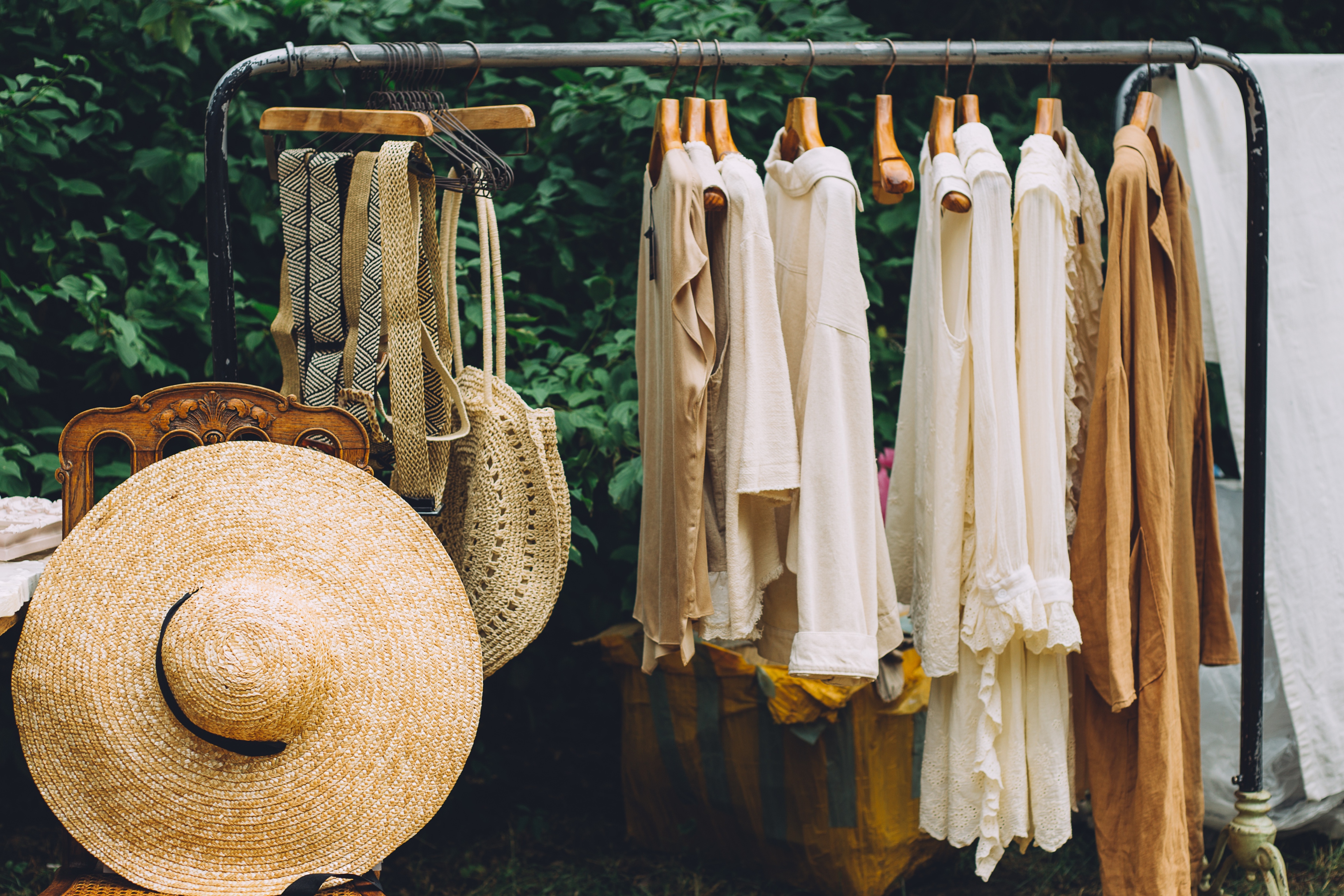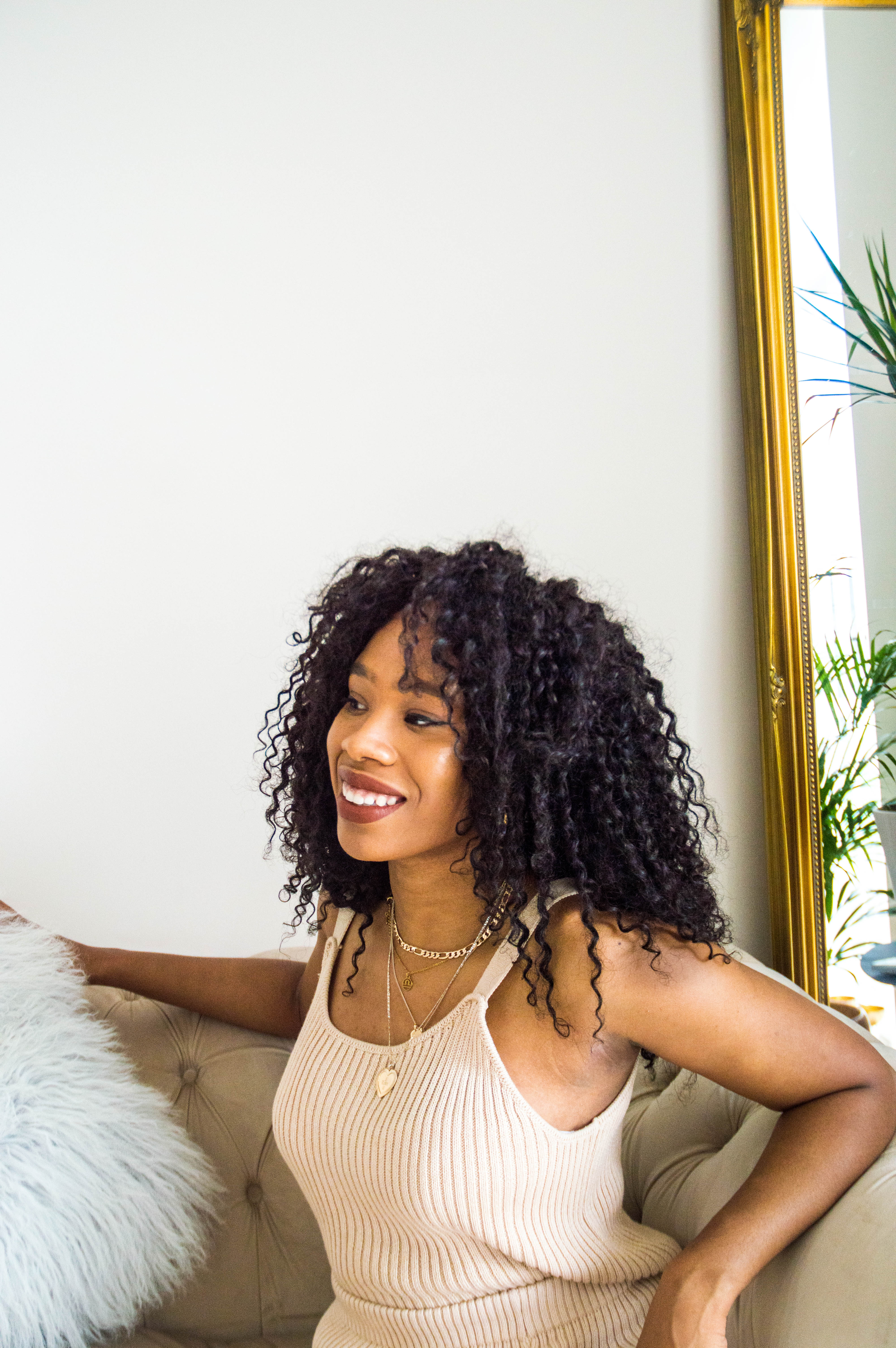Bamboo vs cotton: which material is better for the environment?
We investigate what’s the best option between bamboo vs cotton...


So you’ve committed yourself to adjusting your shopping habits for the sake of the environment—be it spending less on fast-fashion, shopping the best sustainable activewear and best sustainable fashion brands or by finding out about bamboo clothing. Maybe you're being more mindful about which fabrics you choose while being aware greenwashing too. Yet, you're still a little baffled by some of the advice available on sustainable living and which sustainable fabrics to look out for when making your purchases, especially once you've understood the difference between sustainable vs ethical shopping.
For those who’ve ventured on a sustainable fashion journey, bamboo and cotton are materials that have most likely cropped up (excuse the pun). Both have been hailed as eco-friendly fabrics but which is better or more sustainable?
Let’s weigh up the pros and cons.
What makes a material sustainable?
According to WRAP UK, around £140 million worth (around 350,000 tonnes) of used clothing goes to landfills in the UK every year. They say the “production, use, and disposal of clothes has a significant environmental impact”.
To help with our evident fashion problem, many brands are beginning to use materials from natural, renewable sources, which have minimal impact on the environment during their production. Sustainable fabrics are also long-wearing and designed to last for years to come and not tossed out after a few wears. Also, these fabrics are able to be recycled time again.

What makes bamboo sustainable?
When we first think of bamboo, pandas may come to mind. Yet, cute animals aside, bamboo has long been hailed as a great alternative to plastics and other non-biodegradable materials. From toothbrushes to toilet paper, we’ve seen a considerable uptake in bamboo products in stores—and it's definitely widely used among those who embrace Earth Day everyday.
Why? Well, it’s a fast-growing grass that requires no fertilizer, pesticides, and self-regenerates from its own roots—a win when it comes to farming. It’s also super strong which makes it a great, long-lasting material for furniture and more.
However, as explained by Eco and Beyond, when it comes to Bamboo production there are still ethical question marks. As the majority of bamboo is sourced in China then shipped from across the globe “the distance a product has to travel greatly influences its carbon footprint”.
When it comes to bamboo fabrics there’s also a grey area to consider. Eco and Beyond say to turn the rough plant into soft, wearable material, typically “requires an intensive and chemical-heavy process to produce the fabric”.
The best bamboo-toting brands are ones that source from responsible farmers. Fashion brand Thought Clothing is a sensible choice. Its products have made from bamboo “grown in controlled, responsibly sourced forests”.
What makes cotton sustainable?
Easy, breezy, beautiful cotton—a material that is favored during the summertime. Between cotton bed sheets to lightweight T-shirts, cotton has also long been associated with quality, eco-friendly fashion. Unlike synthetic fibers such as polyester and rayon, cotton is a completely natural fiber and biodegradable.
But, while cotton garners many sustainability points, like bamboo, ethical issues arise when it comes to production. Cotton farming requires the use of pesticides and toxic chemicals that seep into the earth and water supplies. It also uses up a considerable amount of water—a simple white t-shirt and a pair of jeans can take 20,000 litres of water to make, and that’s 13 years of drinking water.
It’s worth mentioning that cotton also has a dark history. The transatlantic slave trade saw thousands of Africans forced to work in American cotton fields, and even in recent years, the cotton industry has been accused of worker exploitation.
So how to shop it ethically? It’s wise to look for the organic cotton seal of approval — look for the Better Cotton Initiative mark. We like the brand Beaumont Organic which uses 100% certified organic cotton, linen and lyocell, and other sustainable fabrics.
So bamboo vs cotton: which is best?
Both materials offer up significant pros and cons when it comes to sustainability. However, bamboo appears to have similar benefits to cotton yet fewer ethical issues. As Good On You explains: “Bamboo fabric is much less costly to produce than cotton (and avoids the extensive use of pesticides in non-organic cotton production)." Though they do warn bamboo “is sadly not the perfect answer to all our ethical clothing conundrums”.
Bamboo-made products offer up plenty of consumer benefits. As a fabric, it’s strong, durable, yet breathable and light—for items like bedding, it’s credited for getting softer the more you wash it. While this sounds good, some shoppers may have noticed that bamboo products aren’t as widely available as cotton.
The best advice would be to seek out brands that not only focus on renewable fabrics but have taken considerable time to understand how their products have been sourced. Keep an eye out for organic, certified cotton and the all-important fair trade seal of approval.
L’Oréal Blackett is a journalist, presenter, and magazine editor specialising in women’s lifestyle (BBC Radio, Bustle UK, Body Confidential, Daily Mirror). She also hosts popular podcast The Edit. Fuelled on coffee and a hip hop soundtrack, you can find L’Oréal sprinting a daily 5K or trying the latest HIIT class. L’Oréal also credits interviewing fitness guru Shaun T in his underwear (long story). She's currently training for her first marathon.
